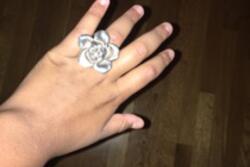Growing Up Jewish
I made the decision to continue Hebrew school after seventh grade when my friends informed me that they signed up because it “sounded fun.” That decision, although not well thought out, was one of the best choices I’ve ever made. Hebrew High, as my temple called it, was the highlight of my week. Every Tuesday night from 6:30 to 8:30, my ideas were valued. I was taught how to apply my Jewish values in my everyday life, which, to this day, is one of the most important lessons I ever learned.
Hebrew High gave me a voice, and for that I will be forever grateful. I soon realized, though, that many people didn’t understand what Hebrew High meant to me. At my dance studio, I was often asked why I didn’t take class on Tuesdays like everyone else. When I told my peers why, I was often greeted with scoffs or laughs. It felt like people were waiting for me to say something like “So stupid, right?” or “Yeah, I hate going.” But I never did. I was more confused than upset; I was naive, and I couldn't make sense of their reactions.
As I got older, I continued to receive the same responses from Jews and non-Jews alike. If anything, they got worse with time. Someone once jokingly compared “Hebrew High” to “Monster High” (a children’s show about monsters attending school), a comparison that left me extremely unsettled.
These responses were confusing, but even more shocking was the fact that many of these people were Jewish themselves! Fellow Jews laughing at the fact that I was still a Hebrew school attendee—I didn’t know what to do with that.
Sophomore year is confirmation year at my temple. As my class’s confirmation approached, so did a major conflict. My dance company’s performance was on the same night as my confirmation service. I knew that my presence at the dance show was necessary for my teammates, so I desperately tried to work something out. After countless back-and-forth’s with my dance company director and my clergy members, it was decided that nothing could be done to resolve the conflict. I could attend the consecration service the week before confirmation, but I would have to miss my confirmation service.
When I explained my situation and asked for an opinion, I was greeted with the familiar scoffs and laughter I had received since I began Hebrew school. After a couple weeks of this, I stopped talking about it. The ignorant responses were becoming unbearable; I felt stupid and worthless for even considering missing my show. When friends of mine would ask for updates, I would say I was still working it out, and ask if we could talk about something else. I felt more alone and out of place than I had ever felt. Two of my favorite things, Judaism and dance, had become my biggest stressors; I fully believed I was simultaneously letting down my team and my confirmation class. No one, besides my peers in Hebrew School, understood my situation.
And then it dawned on me.
My whole life, I had been laughed at for something I considered very important to me. My religion wasn’t taken seriously and was treated as a joke, or even worse, as something negative. Years and years of being set up to feel ashamed of my Judaism, of my heritage and culture, had managed to actually make me ashamed of it. Every response I received further invalidated my Jewish identity, so much so that I felt guilty and idiotic for trying to find value within my religion.
Still juggling these heavy emotions, the week of confirmation approached. On Wednesday, I left my dance show rehearsal for my consecration service. I felt guilty about leaving the mandatory rehearsal and I cried from the minute I left school until the minute I arrived at temple.
I was called up to receive my blessing with my family behind me and my clergy before me. And I cried. I cried because I was so lucky to be Jewish, and to have this community that loved me. And I cried because I had let other people take that away from me. And finally, I cried because I vowed to never feel ashamed of something so beautiful and so important to me ever again.
I know that I will continue to encounter people who will make fun of me because of my commitment to Judaism -- it’s inevitable. But it’s my duty, as a proud Jew, to continue amplifying my voice and articulating why Judaism is so important to me. And if I can do this effectively, I can help those around me understand my pride for my heritage.
This piece was written as part of JWA’s Rising Voices Fellowship.








Amazing! You should not feel ashamed of this piece of your life, which also informs your strength and commitment to other passions, as well. Can't wait to read more from you, Lila!
So proud to have such an insightful niece who even at such a young age knows how to prioritize the more important things in life. Peer pressure is one of the most harmful things in a teenagers life and yet you fought through it and made the correct, albeit difficult, choice. One thing you can be sure of through out your life is that God will never let you down. You are a billiant young lady with a very promising future ahead of you and I look forward to being a witness to the great things you will accomplish in your life. Sending all my love and support your way. Uncle Jimmy
Love this!